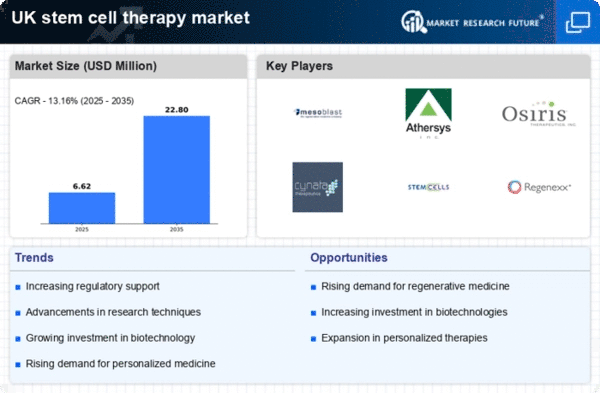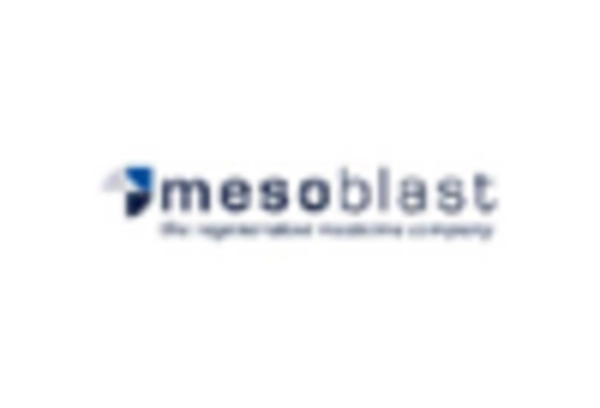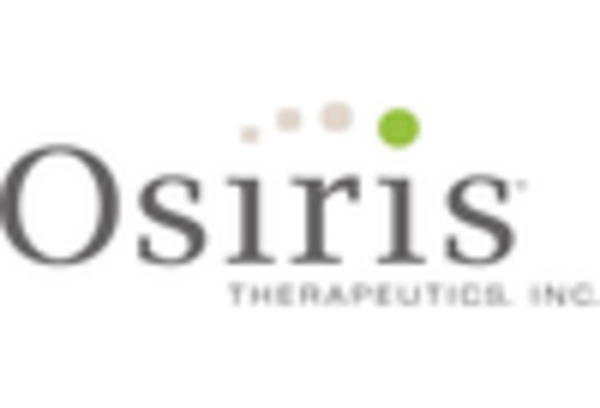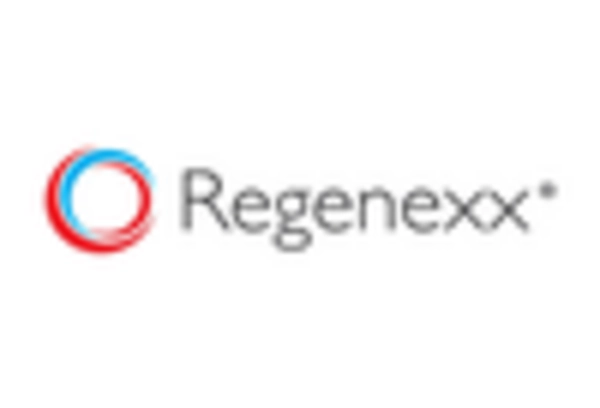Advancements in Regulatory Frameworks
Advancements in regulatory frameworks are influencing the stem cell-therapy market positively. The UK has established a comprehensive regulatory environment that aims to facilitate the development and approval of stem cell therapies while ensuring patient safety. Recent updates to regulations have streamlined the approval process for clinical trials, making it easier for researchers and companies to bring innovative therapies to market. This supportive regulatory landscape is likely to encourage investment and innovation within the sector. As more therapies gain regulatory approval, the stem cell-therapy market is expected to grow, driven by an influx of new products and treatment options that meet the evolving needs of patients and healthcare providers.
Rising Prevalence of Chronic Diseases
The increasing incidence of chronic diseases in the UK is a pivotal driver for the stem cell-therapy market. Conditions such as diabetes, cardiovascular diseases, and neurodegenerative disorders are on the rise, necessitating innovative treatment options. According to recent data, chronic diseases account for approximately 70% of all deaths in the UK, highlighting the urgent need for effective therapies. Stem cell therapies offer potential solutions for regenerating damaged tissues and organs, thus addressing the underlying causes of these diseases. The growing patient population seeking advanced treatment options is likely to propel the demand for stem cell therapies, thereby expanding the market. As healthcare providers and patients alike become more aware of the benefits of stem cell therapies, the market is expected to witness substantial growth in the coming years.
Investment in Research and Development
Investment in research and development (R&D) is a crucial driver for the stem cell-therapy market. The UK government and private sector are increasingly allocating funds to support innovative research in regenerative medicine. In recent years, R&D expenditure in the life sciences sector has seen a notable increase, with estimates suggesting that it reached over £40 billion in 2025. This financial commitment fosters advancements in stem cell technologies, enhancing the efficacy and safety of therapies. Furthermore, collaborations between academic institutions and biotech companies are likely to accelerate the development of novel stem cell applications. As breakthroughs in R&D continue to emerge, the stem cell-therapy market is poised for significant expansion, driven by the introduction of new and improved treatment modalities.
Growing Public Awareness and Acceptance
Public awareness and acceptance of stem cell therapies are steadily increasing, serving as a vital driver for the stem cell-therapy market. Educational campaigns and media coverage have played a significant role in informing the public about the potential benefits of stem cell treatments. Surveys indicate that approximately 60% of the UK population now supports the use of stem cells for therapeutic purposes, reflecting a shift in public perception. This growing acceptance is likely to encourage more patients to seek out stem cell therapies as viable treatment options. Additionally, as more success stories emerge from clinical trials and real-world applications, the demand for these therapies is expected to rise. Consequently, the stem cell-therapy market may experience accelerated growth as public interest continues to expand.
Increased Collaboration Among Stakeholders
Increased collaboration among stakeholders is emerging as a significant driver for the stem cell-therapy market. Partnerships between academic institutions, research organizations, and biotechnology companies are fostering innovation and accelerating the development of new therapies. Collaborative efforts often lead to shared resources, expertise, and funding, which can enhance the research process and bring therapies to market more efficiently. In the UK, numerous initiatives have been launched to promote collaboration in the life sciences sector, with a focus on regenerative medicine. These partnerships are likely to result in the discovery of novel stem cell applications and improved treatment protocols. As collaboration continues to thrive, the stem cell-therapy market may witness substantial advancements and growth.
















